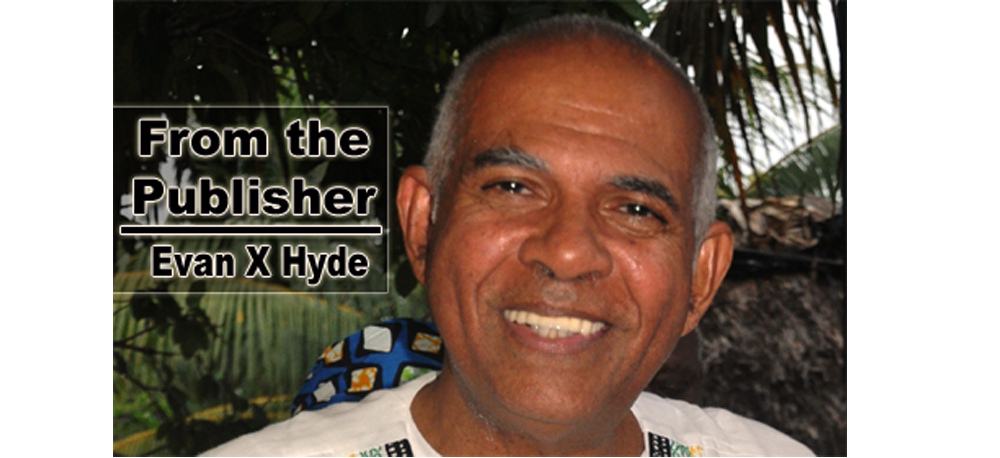If you listen to KREM Radio regularly, you will frequently hear personalities like YaYa Marin Coleman and Katie-Numie Usher discuss, disparagingly, I would say, those they refer to as colonized individuals amongst the prominent people in Belize.
I believe the people in the Society for the Promotion of Education and Research (SPEAR), in Belize’s post-independence era, discussed their opinion that Belize had become an independent country, but that the Belizean people had not been decolonized.
Haiti was a French colony (the richest in the French arsenal) that they called San Domingue in 1789 when the French Revolution broke out with the storming of the Bastille prison in Paris, the capital of France. The revolution in France sparked reactions thousands of miles away in San Domingue, where the majority of the population were cane-cutting African slaves, which led to an uprising of those slaves which began in 1791 and was the only successful such revolution in history.
In the latter part of the 1790s, one Napoleon Bonaparte became a kind of monarchical powerhouse in France, around the same time that Toussaint L’Ouverture, a former slave, had become absolute master of Haiti and controlled the Dominican Republic, which had been a Spanish colony on the eastern side of Hispaniola. So then, it is possible to say, I think, that the Haitian people were the first people to be decolonized (or to decolonize themselves) in the Western Hemisphere after being dominated by European powers.
But it was not the great Toussaint who completed the decolonization of the Haitian people. Toussaint was a great admirer of French culture and civilization, and when Napoleon sent his brother-in-law, Charles Leclerc, with an army in 1802 to re-enslave Haiti, Toussaint behaved too diplomatically, as a result of which the French betrayed, captured, and shipped him to France to die in chains.
It may be said that it was a man considered a wild man, Dessalines, who led the Haitians to victory over the French army which Napoleon had sent to re-enslave Haitians. But this is a subject I cannot discuss authoritatively, because we, as British subjects growing up in British Honduras in the 1950s and 1960s, were taught absolutely nothing about the Haitian Revolution. (Haiti became a black republic in 1804, and the Haitian people are a decolonized people if you compare them to us Belizeans.)
In the year 1812, the aforementioned Napoleon Bonaparte, at the time in control of the finest army in Europe, invaded Russia. We Belizeans know nothing about Russia, to the extent that we believe the British and the Americans defeated Nazi Germany in World War II, when in fact it was the Russians who sacrificed 26 million lives to fight off Adolf Hitler, who had made the same mistake in 1941 that Napoleon made in 1812, which is to say, invading Russia too close to the onset of the deadly Russian winter.
The invading French and the Russians fought a battle called the Battle of Borodino as the French approached Moscow, the Russian capital. A Wikipedia page claims there were 68,000 casualties on the two sides. The French entered Moscow and the fighting continued, but the Russians then burned Moscow, and with the winter coming on, Napoleon and his army had to run from Moscow to save their skins. They fled past the same Borodino battlefield where the epic battle had been fought two weeks before: wolves and dogs were feasting on the human corpses which had been war casualties.
As colonized people, we Belizeans looked to the British and other Europeans for example and leadership in culture and matters such as those. In British Honduras, the center of our efforts to copy British and European culture was the original Bliss Institute in Belize City, built by money donated by Baron Bliss in 1926. The original Bliss Institute was totally elitist.
This is how one Michael D. Phillips began an essay entitled “The Festival of Arts: British Honduran, Belizean, and National”. His essay appears in a book entitled BELIZE: SELECTED PROCEEDINGS FROM THE SECOND INTERDISCIPLINARY CONFERENCE, a collection of essays edited by the aforementioned Michael D. Phillips and published by the University Press of America in 1996:
”For 27 years, from 1953 until 1979, the Festival of Arts was the biggest and most important cultural event in Belize. From modest beginnings, the festival grew and eventually became recognized as one of the most prestigious and longest-running in all of the Caribbean. Near the end, however, it had fallen victim to apathy as well as a growing chasm between the goals of the festival committees, many of whom had served for nearly the entire 27 years, and the Belizean public. Thus, just two years before the colony was to finally gain complete independence, the ‘national’ festival quietly faded away, leaving behind a rather uneven record of arts promotion and cultural advancement in Belize.”
The Haitians are presently fighting what is akin to a civil war, as we speak. As we speak, Russia has been fighting a war to regain control of Ukraine, which used to be a province of theirs. The Russians are a world power. The Haitians are a decolonized people. They fought a revolution to achieve freedom from slavery and colonialism.
In Belize, we were granted political independence by the British in 1981. It may well be, however, that we are still living in a colonized society, mentally speaking, and for that reason, people like myself look to the future with a modicum of trepidation. Whither Belize? Are we ready for the real?

